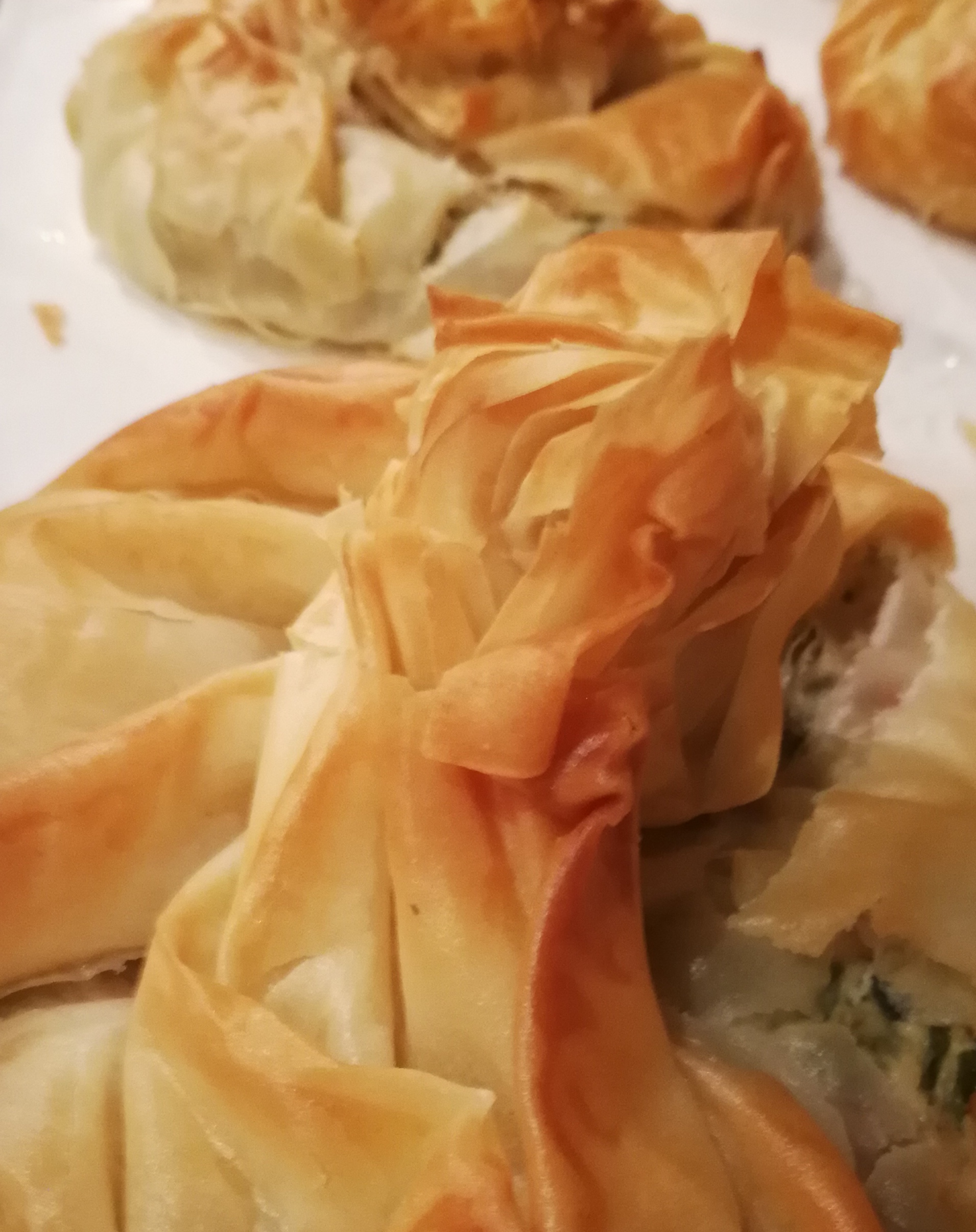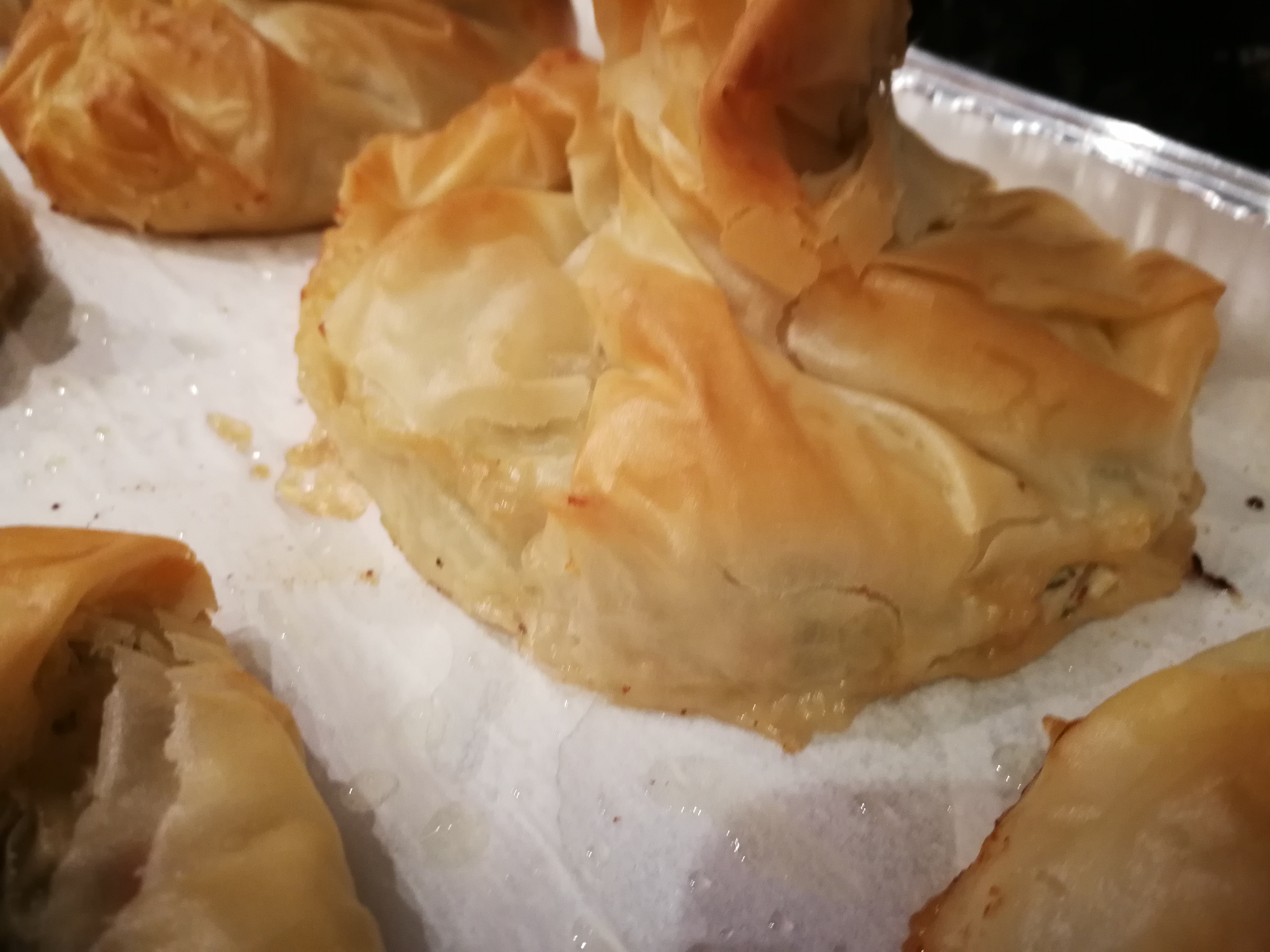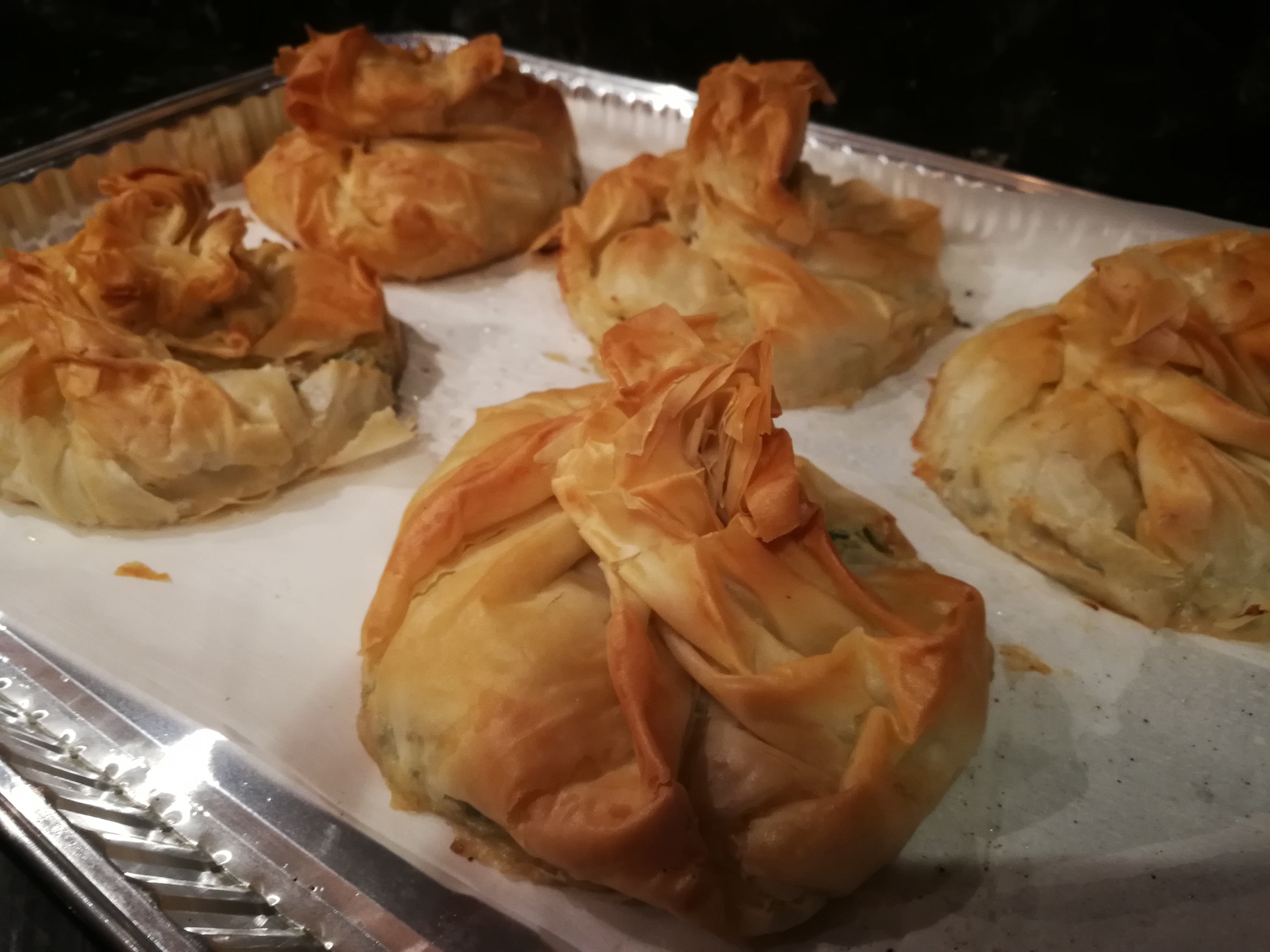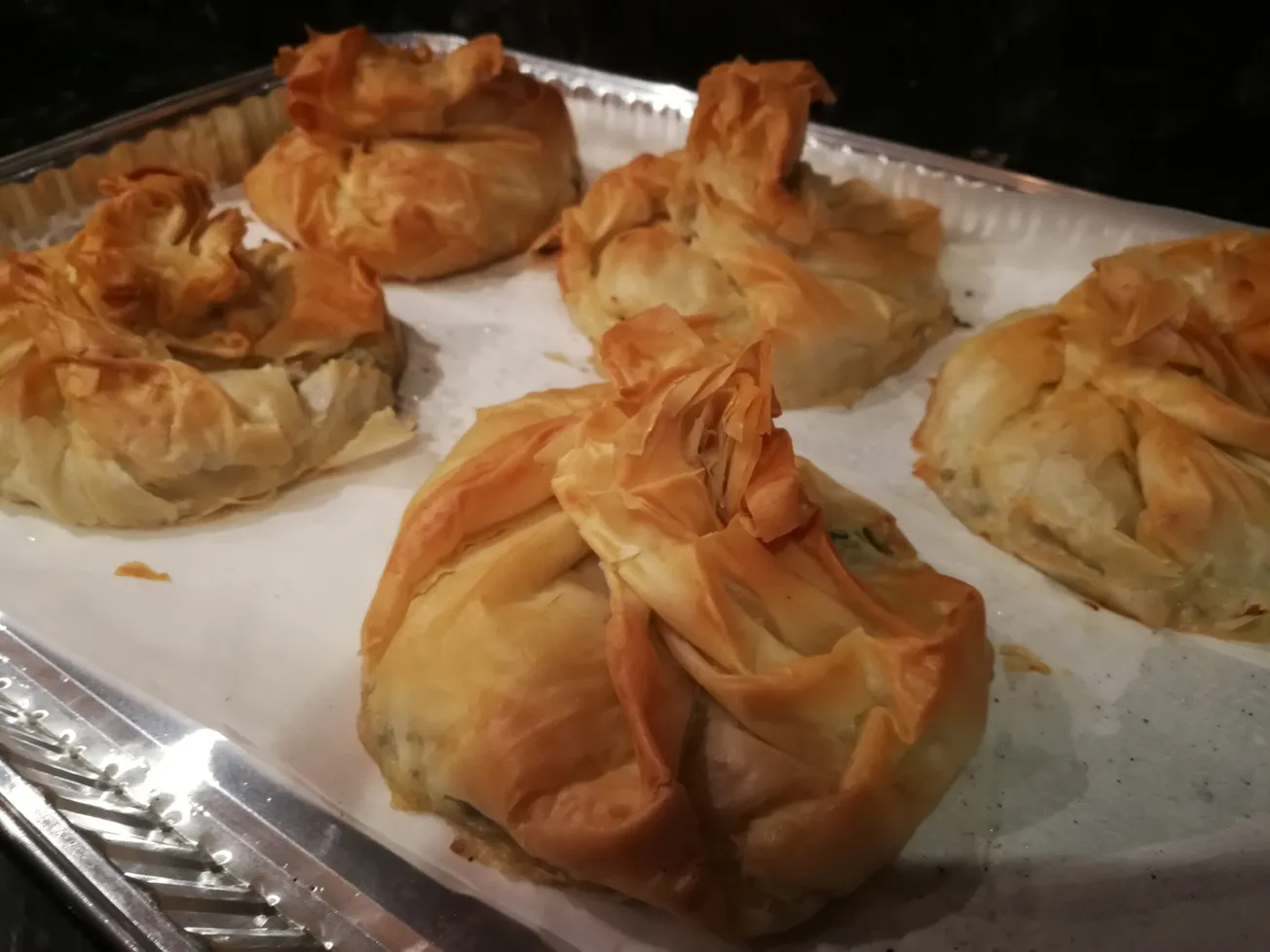Table of Contents
Phyllo, philo, filo pastry: the Eastern Med pastry
Phyllo means leaf in Greek and is the healthy person’s version of the French mille feuille. The Greek version of puff pastry, unlike its Francophone cousin, contains no fat or butter and is made from flour, water and a little bit of vinegar.
Phyllo pastry, invented in Greece, came to light some two thousand three hundred plus years ago, became popular throughout the regions we know today as Syria, Lebanon and Turkey and was used as the layered dough in the making of the dessert baclava. Now baclava touted as a dessert with ‘Arab’ origins was in fact developed when these regions were largely populated by Byzantine Greek, Assyrian and Armenian Christians.
The Christians were the majority population in these regions until the Muslim Ottoman Turks finally ousted them in a long-winded expulsion that took more than seven hundred-odd years, culminating in the Armenian/Christian genocides perpetrated by the Ottoman Turks in the latter part of the nineteenth and first quarter of the twentieth centuries. In short, you can dispense with the population and its culture, but the foods particularly if they are good keep on keeping on.
An interesting personality with no connection to philo pastry that appeared around the same time as philo pastry was the Greek/Jewish philospher Philo of Alexandria or Philo Judaeus, who was born at the end of the Macedonian Greek Ptolemaic Empire that encompassed northern Egypt and much of the Eastern Med. Philo Judaeus is considered the father of modern philosophy as we know it.
Phyllo pastry is a great building block to encase and present vegetarian foods. Phyllo pastry gives the food an attractive look and, if cooked properly, a nice and crispy exterior.
Phyllo pastry is neutral and can be used to build both sweet and savoury dishes.



Philo Spinach and Ricotta Parcels. Photo credit The BFD.
Philo Spinach and Ricotta parcels
Ingredients
- Frozen philo pastry defrosted x 1 packet
- Spinach x 400-500 gram, washed and dried
- Fresh ricotta x 500 gram
- Parmigiana Cheese x 100 gram
- Finely diced red onion x 1
- Knob of butter
- Shluk olive oil for frying
- Dried majoram
- Salt
- Black pepper
- Canola oil for brushing
- Sesame seeds for sprinkling
Method
Ensure that the philo pastry sheets are completely defrosted before using them. As the sheets are super thin, they dry incredibly quickly, so they should also remain covered with a tea towel when not working with them. Put a shluk of olive oil and a knob of butter into a large frypan; when heated, add the onion, salt and pepper, then a large pinch of dried marjoram. Fry until clear. Chop the spinach and add half to the pan with a good sprinkle of water, mix, toss for a minute, remove and set aside to cool.
Place the ricotta, parmigiana, fried spinach and chopped washed uncooked spinach into a large bowl. Mix well, add salt and pepper to taste.
Take a sheet of baking paper and brush canola oil liberally all over the sheet, place another sheet on it and oil that as well. Spoon a good dollop into the centre, lift up all the corners and twist the top of the package, creating an attractive bundle. Sprinkle sesame seeds over the top if desired and place into a well-oiled aluminium single-use round pie tray (the ones you used to get pies in at the pie shop).
Into a 170 Celsius pre heated oven and bake for 20-25 minutes or until nice and golden in colour. It can be served as is or you can serve with a quick accompaniment of mushroom, garlic teeth and chestnuts tossed in olive oil, butter and wine.
Next week: grilled chicken steaks, easy, quick and finger licking good, a great side dish to roast vegetables and greens.
If you enjoyed this recipe why not share it with your friends via social media or e-mail? If you want a copy of your own select the print option at the top of the page.









